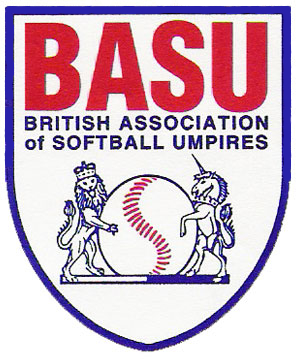Sixteen members attended the 2013 AGM of the British Association of Softball Umpires on Saturday, February 9 in Slough. The meeting made a number of key decisions for the 2013 season, as well as electing Officers, reviewing what happened in 2012 and discussing issues around training, assessment and umpire recruitment.
February 9 in Slough. The meeting made a number of key decisions for the 2013 season, as well as electing Officers, reviewing what happened in 2012 and discussing issues around training, assessment and umpire recruitment.
Decisions
The following decisions were made during the course of the meeting, chaired by BASU Umpire-in-Chief Jes Sandhu
In 2012, players “filling in” as umpires at tournaments, regardless of whether they were BASU-qualified, were paid £10 per game in cash, as opposed to the £15 per game (including the BASU admin fee) that is paid to BASU umpires working at the tournament. In this case, payment is made after the tournament through the BASU Treasurer. The meeting decided that qualified BASU umpires filling in at tournaments at the request of the Crew Chief will now receive the full £15 per game, paid by the Treasurer, provided that when they fill in, they are at least wearing a BASU shirt and cap.
BASU and the BSF need more ESF-qualified fastpitch umpires to call at European tournaments to reduce the chance that the BSF will incur significant fines from the ESF for failure to fulfil our umpire quotas. A Canadian umpire named Paul Mastalerz, who umpired at the 2012 London Cup at Richings Park, has volunteered to take the ESF qualifying course this year and to make himself available to umpire at ESF competitions on the BSF's behalf. The meeting decided to accept Paul's offer, provided that he can guarantee availability to umpire at European competitions.
BASU will maintain a contingency reserve of £6000 so that umpires can be paid promptly when tournament organisers fail to pay on time. The meeting decided that additional reserve funds should be used to cover more games with two umpires and provide more umpire mentoring, both for the purpose of ensuring that new umpires are supported when they first begin umpiring at tournaments.
The BSF is presenting a motion at its AGM on February 23 on rules and requirements for players 18 and under competing in adult teams, and one of these rules will be that helmets must be worn by young players in all playing and coaching situations in both fastpitch and slowpitch. BASU umpires will enforce any such rules passed by the AGM. It's possible that in some situations, umpires may also have some responsibility to assess whether a young player can safely play in an adult game given the situation and conditions.
After some discussion, the meeting agreed that BASU umpires will enforce a uniformly hard line on jewellery for the upcoming season, based on the premise, in most cases, that “if you're not born with it, it's jewellery – and it comes off if you want to play!”
The meeting agreed that in cases where tournaments, having started, are called off due to weather, BASU umpires will be due payment for the game they were calling when play was stopped, plus two more games, so that at least their transport costs can be covered. This provision will be written into contracts with tournament organisers.
BASU Officers
The following were confirmed as BASU Officers for 2013:
Umpire-in-Chief:
Jes Sandhu
Assistant Umpire-in-Chief:
To be confirmed
Secretary:
Robyn Belt
Treasurer:
Kate Moon
Training Officer and BASU Representative on the BSF Executive:
Chris Moon
Membership Officer:
Peter Jones
Fastpitch Officer:
David Hurley
Umpire-in-Chief Report
In his Umpire-in-Chief Report for 2012, Jes Sandhu noted that the largest requirement for umpires in 2012 was, as expected, at the Diamond Series, where 12 fields were in play. But BASU was able to cover most games, and was able to make use of some newer umpires at Diamond 3.
Most other tournaments were covered successfully, occasionally with the use of non-BASU umpires, except for the Solent Lastball at the end of the season, where things might have been even worse had most of Sunday not been rained off. The meeting discussed how more umpires might be recruited for this tournament in future, and suggested to Solent League members present that paid accommodation might make a difference given the tournament location.
BASU met its umpire requirements in Europe in 2012, Jes reported, thus avoiding ESF fines, mainly because we are able at present to send multiple umpires to ESF slowpitch competitions. Good feedback was received on all our umpires who worked in Europe.
Although an ESF slowpitch umpire course was organised at the last minute in 2012, BASU declined to send candidates, as Jes felt they would not necessarily benefit from the course. However, there will be important training opportunities for BASU slowpitch umpires when an ISF Slowpitch Umpiring Course is held in the UK this spring (for more on this course, see below).
More efforts need to be made by the fastpitch community, Jes noted, to put forward candidates for training, both to cover games in the Great Britain Fastpitch League and to create suitable candidates for ESF qualification. And BASU will require that umpiring at the Great Britain Fastpitch League in 2013 is run on a formal basis, with BASU admin fees paid for each game called. In return, BASU will endeavour to provide more umpires for the GBFL.
Jes reported that there are more BASU regional representatives than ever before, and these regions will continue to be supported with training courses. Scotland also has some new full-time umpires coming through, though they work mainly at northern events.
Training Officer Report
The report submitted to the AGM by BASU Training Officer Chris Moon noted that seven two-day BASU courses were delivered in 2012, along with five one-day local league courses and a one-day advanced course for already-qualified umpires.
So far, three two-day courses have been booked by leagues for 2013, with at least three more bookings expected.
With respect to BASU courses, organisers (whether leagues or others) are expected to cover tutors' fees, travel and accommodation costs, and to provide a course venue including a computer projector for classroom work and field space with an infield layout for field work. If organisers can lay on a full game on Sunday afternoon for practical work, so much the better.
BASU's new method for assessing umpires during games every other year is working well, Chris reported, and there have been a couple of instances where experienced umpires have failed their assessment, usually to do with poor mechanics rather than lack of knowledge. This gives BASU the opportunity to retrain these umpires and bring them back up to speed.
In discussion on his report, Chris told the meeting that every region or league should have an umpire assessor, particularly to ensure that newly-qualified umpires who have completed the BASU two-day course can receive a proper assessment, which will help them begin their umpiring career in the right way.
Local Umpire-in-Chiefs should be aware of which existing umpires need re-assessment and which league umpires have just passed a course and should be encouraged to have an assessment.
Harvey Pryor from the East Midlands League has suggested that BASU should produce a leaflet on basic principles of game management for new umpires, and this will be done, perhaps by adapting material from relevant slides in the two-day training course.
One-day courses
The meeting discussed whether running one-day courses to qualify league umpires means that fewer people are taking two-day courses and thus qualifying to join BASU and umpire at tournaments.
In the case of the Greater London Softball Mixed League, which generally requests only one-day courses and has produced few BASU umpires in recent years, BASU is making it a condition for delivering one-day courses that the league requests a two-day course as well.
However, there was a consensus, led by Mike Jennings, that the one-day course can be very valuable, particularly as it concentrates on issues and situations that are likely to come up frequently in games.
New ASA stamp
Chris Moon told the meeting that a new ASA stamp, created only for slowpitch, will be appearing on bats from this year. Any bat carrying this stamp will be legal for play in the UK – as will bats with older ASA or ISF stamps. As of January 2013, the ASA list of non-approved bats has not changed.
BASU will again put its own stamp or sticker on bats this year, as the system seemed to work well in 2012.
ISF Slowpitch Course
Arrangements are almost finalised for an ISF Slowpitch Umpire Course to be held in the UK in May this year, to be delivered by ISF Umpire-in-Chief Bob Stanton, perhaps assisted by an ESF Trainer.
The course is scheduled to take place from May 8-12, with classroom sessions on May 8-10 (possibly at Richings Park), and then practical training and assessment during the first Diamond Series tournament on May 11-12.
The course will be open to umpires from the whole of Europe who have an ESF qualification and/or six years of umpiring experience, and there will be discussions with the ESF to see if umpires who receive an ISF qualification from the course can also be considered ESF-qualified as well.
Although the purpose of holding the course this year is to produce European umpires qualified to officiate at the ISF Slowpitch World Cup planned for January 2014, BASU considers the course to be worth proceeding with even if the Slowpitch World Cup is cancelled.
Jes Sandhu wrote in his Umpire-in-Chief report: “From my experience the American clinicians bring a whole new dimension to umpiring that would greatly benefit all of our umpires, so we strongly recommend they make the most of this opportunity.”
BASU will consider asking Bob Stanton to run a special clinic for less experienced BASU umpires while he is in the country, and to assess the work of umpires in general at the Diamond Series.
Training for trainers
BASU needs to train more trainers to deliver umpire courses, and will try to organise such a course – for a maximum of six people – in 2014.
Meanwhile, BASU members will be emailed this year to generate interest in the course.
The perennial problem
As always, some time was devoted to the question of how more umpires who qualify through courses delivered to leagues can be encouraged to join BASU and umpire at tournaments.
However, most of the discussion focused on how new umpires who do join BASU can be supported to umpire A-grade slowpitch games, where the perception is that umpires, and especially new umpires, are often given a hard time by players.
Some Crew Chiefs attempt to address this problem by assigning new umpires to A-grade games on Saturday, to give them the experience, but then using more experienced umpires during the playoff stages on Sunday. Where possible, two-person systems are used to pair experienced or new umpires at these games, and BASU is encouraging this to happen, at BASU's expense, where a tournament might have excess umpires.
Another strategy, generally approved by the meeting, is to rotate both new and experienced umpires through different grades of play during a tournament, so no one is umpiring the same grade all the time.
But in the end, the conclusion of the meeting was that umpires have to be competent to umpire A-grade games, and able to handle the pressure. On the other hand, BASU needs to step in if there is too much abuse of umpires by players, especially in situations where a new umpire may be reluctant to use sanctions, including ejection.
